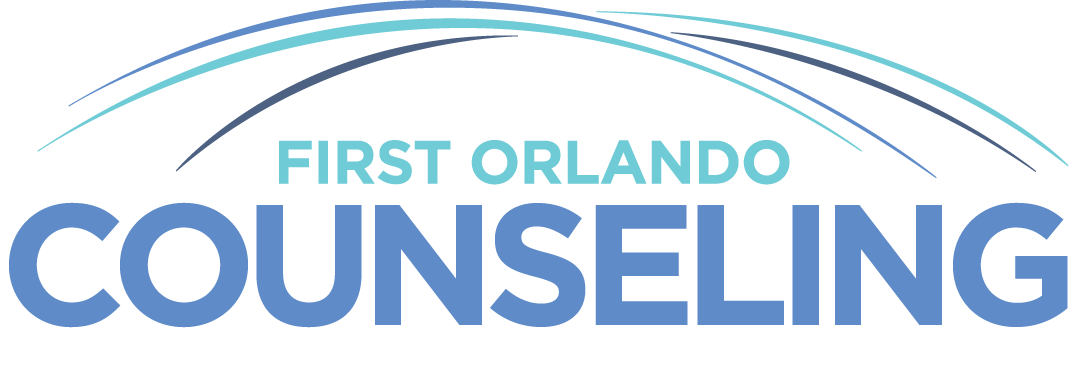Verbal Sexual Abuse
Verbal Sexual Abuse includes the use of spoken or written words to express, evoke, or imply sexual content. Verbal Sexual Abuse is prevalent and is can be experienced in social settings, at work, and at home. It is often given a pass in our culture as crude humor even though it does real harm. It can be hard to deal with because, we might feel that there's a violation but be fearful of facing social or relational consequences. Examples of Verbal Sexual Abuse include; sexual jokes, teasing about physical characteristics, graphic sexual descriptions, name calling, comments on physical development, solicitation, unwanted romantic advances, sexting, and stalking with phone calls or other messages, etc.
“I’m just joking around… Don’t be so sensitive…” “So, your saying my feelings don’t matter”In the case of crude joking, many times, we will laugh as well or continue the joke. But it's important to understand that this is a form of a violation and can be serious. Teasing about anything, like body parts, the size of men or women, poking fun at how tight or how loose the clothes are, making jokes about how somebody looks, and graphic sexual descriptions in conversations can be unwelcomed and uncomfortable. Just because we choose to laugh it off does not mean it is acceptable. People often laugh to manage discomfort in moments where they are feeling helpless.
“That’s what she said…” “Ha...Ha... (SIGH)”Sexting also falls under the category of verbal sexual abuse and can appear more subtly than we may expect. For example, if you are in a group chat for school or work and maybe there is this, sort of, passive “Oh, we know she knows about that” comment or sending inappropriate GIFs or memes. Well intended nicknames given in the workplace or social circles or even in a family maybe inappropriate.
“It’s no big deal…” “Actually, it is”Verbal Sexual Abuse becomes normalized when we do not say anything. If you're feeling uncomfortable, odds are that someone else is, too. The fear of social isolation or consequence that leads to silence, is a negative consequence itself because we suffer alone with our boundaries continuing to be violated saying, “Hey, if I just laugh at this, maybe they'll just go away!” Every person needs to think through what their boundary is and how they want to be respected in the communication. In discussing this problem, it often seems that the onus is on those who are victims of verbal abuse. That is not so. It seems the group becomes complicit in the act. Choosing to speak up about inappropriate conversations is the responsibility of responsible social citizens. In absence of an identifiable victim, addressing forms of speech that could be harmful is important as an exercise in abuse prevention.
Power imbalance is a major factor in verbal sexual abuse and there is no greater imbalance than when communicating with minors. As minors develop their sexual identity words are powerful. The aforementioned examples of Verbal Sexual Abuse have an amplified effect on children. A specific issue that they face is well meaning, but often awkward and confusing, commenting on their physical development.
This issue is nuanced as the others are, in that knowing whether something is a violation is dependent on the experience of the person whom the comments are being directed towards. Examples we hear are stories that perhaps an aunt or uncle makes comments of “Oh, look at your legs” or “Your body's just developing so beautifully” “Look at those hips,” or, “Wow, are you wearing a bra now?” “Wow, you're really growing.”. That can feel very, uncomfortable for the person because it feels like, “You're talking about my body and I don't have control!” on top of this being a confusing time in life already.
Experiences like these can be frustrating and erode our self-confidence and sense of personal dignity. If you are struggling with the effects of Verbal Sexual Abuse please seek help with a mental health professional to rebuild your self-concept, establish appropriate boundaries, and take back your voice.
FAQ’s
Q: Does sexual abuse have to involve physical contact?
A: No, sexual abuse can happen without being touched or even being in the same space as the abuser. Sexual abuses can include words spoken, sights seen, and acts done covertly, all without physical contact.
Q: What is a Trauma?
A: Trauma can be defined as an emotional response to an experience that is distressing or disturbing. With sexual trauma this often includes experiencing a “No choice, No voice” event. Experiencing something where there's a loss of control, coercion or pressure, a perceived helplessness.
Q: Can I heal from this?
A: Yes!! If you have experienced something like this, you do not have to be stuck with trauma for the rest of your life. With advanced techniques like Accelerated Resolution Therapy and Eye Movement Desensitization and Reprocessing, that help to heal the impact of those events, recovery is within reach. These new techniques limit your exposure to your memory of the past event in session and expedites the healing process. Therapist with these advanced techniques can really help you to process trauma without a high level of distress in recalling the memories. Sometimes we are able to work with clients without them needing to retell the story until it no longer triggers intense emotions.
Hear more about this topic on our podcast The Reimagined Life: Episode 5: 5 Types of Sexual Abuse You May Not Be Aware Of (ft. Cristina Ally)

